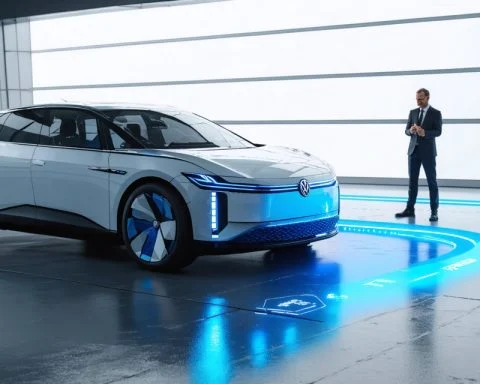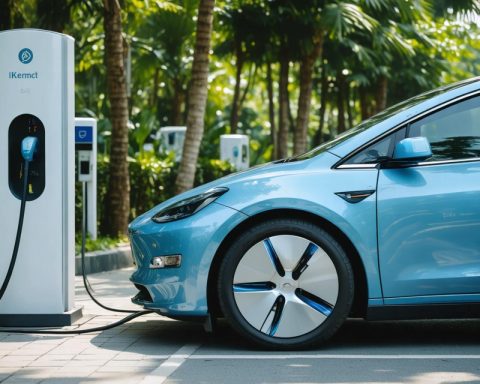Solid-state batteries represent a transformative leap in energy storage technology, poised to revolutionize everything from electric vehicles to consumer electronics. These batteries replace the liquid or gel electrolytes found in traditional lithium-ion batteries with a solid electrolyte. This seemingly modest change unlocks a host of significant benefits.
Firstly, safety is enhanced. Solid-state batteries are far less likely to experience overheating or catch fire since their solid electrolytes are non-flammable. This is a critical improvement, especially for electric vehicles and portable devices that require high energy densities.
Moreover, these batteries can potentially offer higher energy densities. Solid-state technology allows for the use of lithium metal anodes, which can theoretically store much more energy than the graphite anodes used in standard lithium-ion cells. This means that devices could run longer between charges, and electric vehicles could have greater ranges without increasing battery size or weight.
Another notable advantage is faster charging times. Solid electrolytes may support faster ion movement than liquid ones, allowing for quicker charging processes.
However, while they hold immense promise, solid-state batteries are still under development. Challenges remain, particularly in scaling production and reducing costs to levels comparable to existing battery technologies. Companies like Toyota, QuantumScape, and others are investing heavily in research to overcome these hurdles, aiming for commercial viability within the next few years.
As innovation continues, the potential of solid-state batteries to reshape multiple industries is undeniable, heralding a new era in energy technology.
The Future of Power: Solid-State Batteries as Game-Changer
Exploring Solid-State Batteries: Unveiling Innovations and Prospects
Solid-state batteries are poised to revolutionize the energy storage landscape, offering substantial advancements over traditional lithium-ion technology. By replacing the liquid electrolytes with solid materials, these batteries promise remarkable benefits that could transform industries ranging from automotive to consumer electronics.
Enhanced Safety and Greater Energy Density
One of the most notable advantages of solid-state batteries is their improved safety features. The solid electrolytes used in these batteries are non-flammable, significantly reducing the risk of overheating or fire. This feature is crucial for applications in electric vehicles and high-capacity portable devices, where safety concerns are paramount. The possibility of employing lithium metal anodes further enhances energy density, potentially allowing devices to run longer between charges and electric vehicles to cover more mileage on a single charge.
Faster Charging and Technological Innovations
Beyond safety and energy storage, solid-state batteries offer the potential for quicker charging times. The solid electrolytes facilitate faster ion movement compared to their liquid counterparts, potentially shortening the time it takes to recharge devices. As companies like Toyota and QuantumScape push the envelope, ongoing innovations are focusing on overcoming current challenges, such as scaling production and cost reduction.
Market Trends and Industry Insights
Recent trends indicate a significant shift towards solid-state battery technology. Various industries are eyeing this technology for its potential to bring down energy costs and improve efficiency. According to market analysis forecasts, the widespread adoption of solid-state batteries could commence within the next decade, driven by continued research and investment in overcoming existing limitations.
Predicted Challenges and Future Outlook
Despite their potential, solid-state batteries encounter hurdles like production scalability and cost-effectiveness. The current challenge lies in bringing these batteries to a commercially viable state. Nevertheless, sustained investment and research may propel these technologies towards mainstream adoption, paving the way for a more sustainable energy future.
Compatibility and Use Cases
Solid-state batteries are particularly well-suited for electric vehicles due to their enhanced safety and energy efficiency. The consumer electronics sector also stands to gain, with longer-lasting and quicker-charging devices. Moreover, as industries seek sustainable solutions, the environmentally friendly aspect of solid-state batteries could offer a key advantage over traditional options.
For more information on the efforts and innovations in battery technologies, visit link to Toyota and link to QuantumScape. The future of energy storage is bright with the promise of solid-state batteries leading the charge towards safer, more efficient power solutions.







